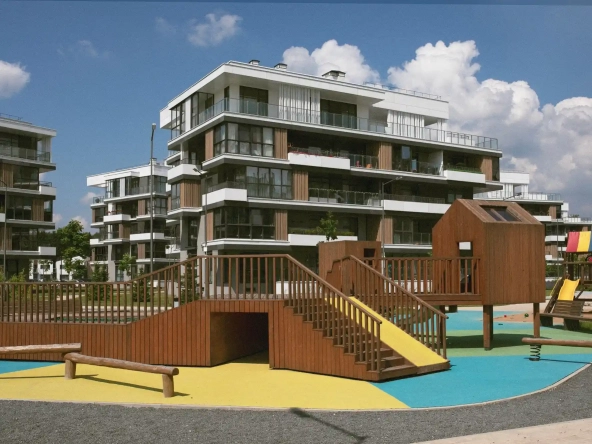Off-plan property in Kenya has rapidly become a top choice for real estate investors in major cities and expanding urban centres. This investment model, purchasing property before construction is finished, continues to attract both local and diaspora buyers due to its affordable pricing, flexible payment options, and promising capital appreciation.
What is off-plan property? Off-plan property is also known as pre-construction property or under-construction property refers to real estate sold before it is fully built. Buyers typically place a deposit, sign a sale agreement, and make scheduled payments throughout the construction period. Upon completion, the developer hands over possession and finalizes the transfer of ownership.
Here are some of the reasons buyers go for off-plan property:
- Lower Purchase Prices
Off-plan properties are typically priced below market value, making them more affordable than completed units. - Flexible Payment Plans
Most developers offer structured payment terms spread over the construction period, reducing the upfront financial burden. - Capital Appreciation Potential
Property values often increase during the construction phase, allowing investors to benefit from strong capital gains by the time the project is completed. - Customization Opportunities
Buyers may have the chance to personalize elements such as finishes, layouts, or fittings before construction is finalized. This is at the discretion of the developer. - Ideal for First-Time Buyers and Diaspora Investors
The combination of affordability, modern designs, and payment flexibility makes off-plan a strategic entry point into Kenya’s property market. - Developer Incentives
Many developers offer early-bird discounts, free upgrades, or waived fees to attract early buyers.
While off-plan property offers attractive benefits, it also comes with certain risks. Here are a few to consider:
- Frequent Project Delays
A common challenge in buying pre-construction homes in Kenya is project delay. Some projects extend far beyond the stated completion date. If your sale agreement lacks timelines or penalties for delay, you could wait years without compensation or recourse. - Developer Reliability Concerns
Not all developers are trustworthy. Some lack the financial muscle or experience to deliver, putting your investment at serious risk if the project stalls or fails. - Mismatch Between Promises and Reality
What’s marketed isn’t always what’s delivered. Buyers in Kenya have reported discrepancies in finishes, layouts, and amenities compared to the original plans. - Weak Legal Safeguards
Kenya’s regulatory enforcement around off-plan contracts is still developing. Without airtight legal agreements, buyers may have little recourse if things go wrong. - No Immediate Return
You can’t live in it or rent it out until it’s complete, which means no short-term income or use, just money tied up. - Poorly Structured Payment Plans
Many buyers make upfront payments without key safeguards in place, such as: Escrow or Stakeholder accounts, clear refund policies or payments tied to construction milestones.
With these risks in mind, here are some effective ways to minimize the dangers of investing in off-plan projects:
- Conduct Comprehensive Legal Due Diligence
Before committing to any off-plan investment, it’s crucial to verify: Land ownership through a title deed search at the Ministry of Lands, all relevant approvals including zoning, environmental assessments, and building permits and the developer’s registration status and track record with previous projects. Legal due diligence is not optional, it’s essential to protect your investment. - Use an Escrow Account
Opt for an escrow or regulated project account to ensure your payments are securely managed throughout the construction period. These accounts protect your funds by holding them in trust and releasing payments to the developer only after verified completion of specific construction milestones. This reduces the risk of misused funds and provides greater financial security in case of delays or project failure. - Hire Your Own Lawyer
Avoid depending on the developer’s legal team, as their priority is to protect the developer. Instead, hire an independent, qualified property lawyer to thoroughly review the sale agreement, ensure legal compliance, and safeguard your interests throughout the transaction. - Visit the Site
Don’t rely solely on photos, brochures, or virtual tours as they can be misleading. Take time to visit the actual site in person. Check for real progress: Are construction activities ongoing? Are workers present? Does the project match the stage the developer claims it’s at? A site visit offers valuable clarity and helps you spot red flags early. - Monitor Progress Actively
Don’t go silent after signing the contract. Stay engaged by tracking construction milestones, requesting regular progress reports, and visiting the site periodically. Active monitoring ensures the project stays on schedule and gives you the opportunity to address issues before they escalate.
Buying off-plan can be a smart and more affordable way into Kenya’s rising property market, but it comes with real risks, from delays to outright fraud. The key is to go in with eyes wide open: research the developer, ask hard questions, visit the site, involve a lawyer early, and never be pressured into a rushed decision.





